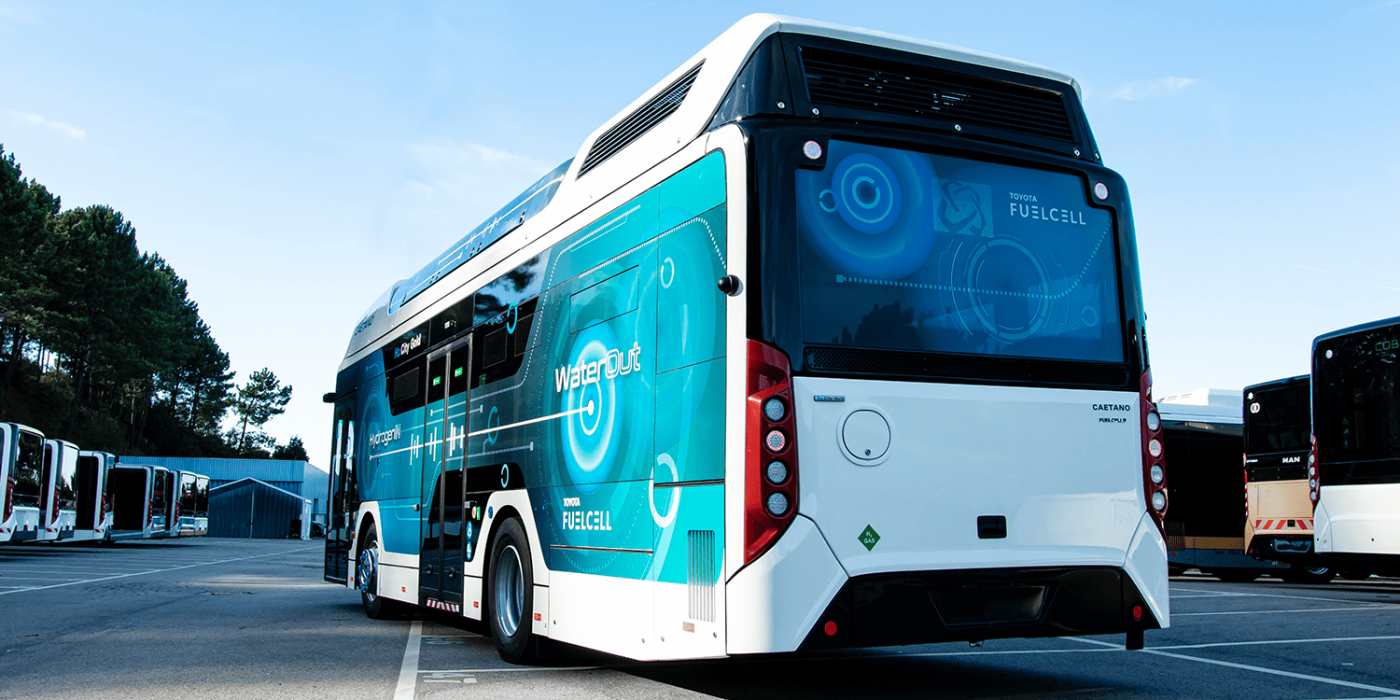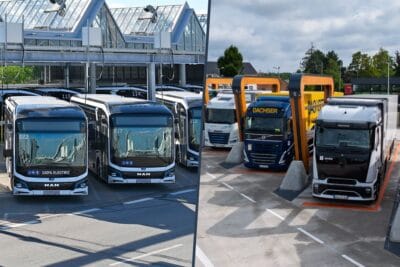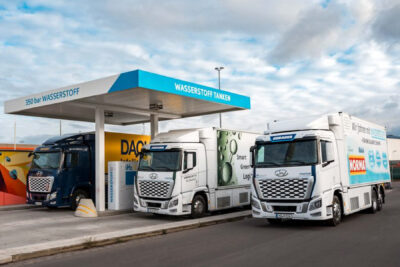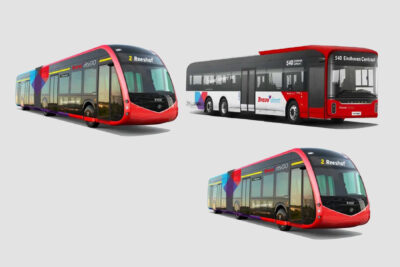Isuzu and Toyota announce fuel cell bus for 2026
The two Japanese manufacturers, Toyota and Isuzu, have signed an agreement to jointly develop next-generation fuel cell buses. The result of this development work is expected to roll off the production line at the Utsunomiya plant in Japan in the 2026 financial year (April 2026 to March 2027). Neither side is revealing many details about the planned fuel cell bus yet. However, it is clear that the vehicle will be based on the Isuzu/Hino battery electric bus (BEV) platform and equipped with a fuel cell system developed by Toyota.
In their identical press releases, Toyota and Isuzu cite the features of the BEV bus platform, which was inaugurated in 2024, including a flat floor, which is also to be retained in the fuel cell bus variant (FCEV). Toyota’s current fuel cell generation (2nd generation) delivers 60 or 80 kW and can cover a voltage range from 400 to 750 volts. The third generation is announced for 2026, so it could be installed in the Japanese manufacturer’s new FC buses. However, this has not been confirmed.
According to the partners, it is important to achieve economies of scale through common parts in BEV and FCEV buses. Isuzu designed, developed and constructed the BEV platform in collaboration with Hino. The electric buses with this architecture are also built at J-Bus. Isuzu states that it wants to expand its range of zero-emission buses with this initiative. Toyota sees the partnership as a further initiative to establish its fuel cell technology in various markets. Also on board are local authorities and companies in various model regions that are to set up H2 ecosystems with the support of the Japanese government.
Some of Japan’s manufacturers announced back in 2021 that they would be working more closely together on the development of zero-emission buses. Even then, they were already promising a battery-electric low-floor bus for 2024, which would later be supplemented by a fuel cell version. Hino, Isuzu and Toyota have been pursuing this roadmap for some time.
The three manufacturers are also founding members of the Commercial Japan Partnership, which Suzuki and Daihatsu later joined. The development joint venture aims to advance CASE technologies (Connected, Autonomous, Shared, Electric) in the commercial vehicle sector, including electric drives. J-Bus is now set to benefit from these developments.
Toyota already has experience with FCEV buses: in 2018, the Japanese company launched a fuel cell bus called Sora, and Portuguese manufacturer CaetanoBus uses Toyota fuel cells in its buses for Europe. Last year, Turkish bus manufacturer Karsan announced that it would launch its first fuel cell-powered buses in 2025, using Toyota technology.
This article was first published by Cora Werwitzke for electrive’s German edition





2 Comments